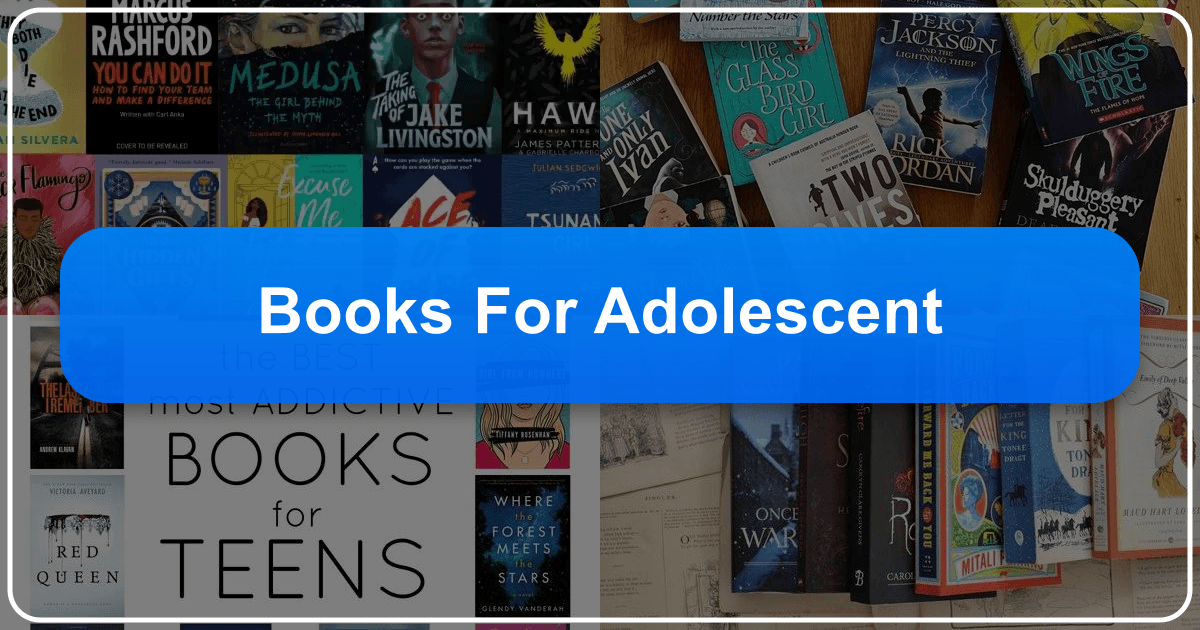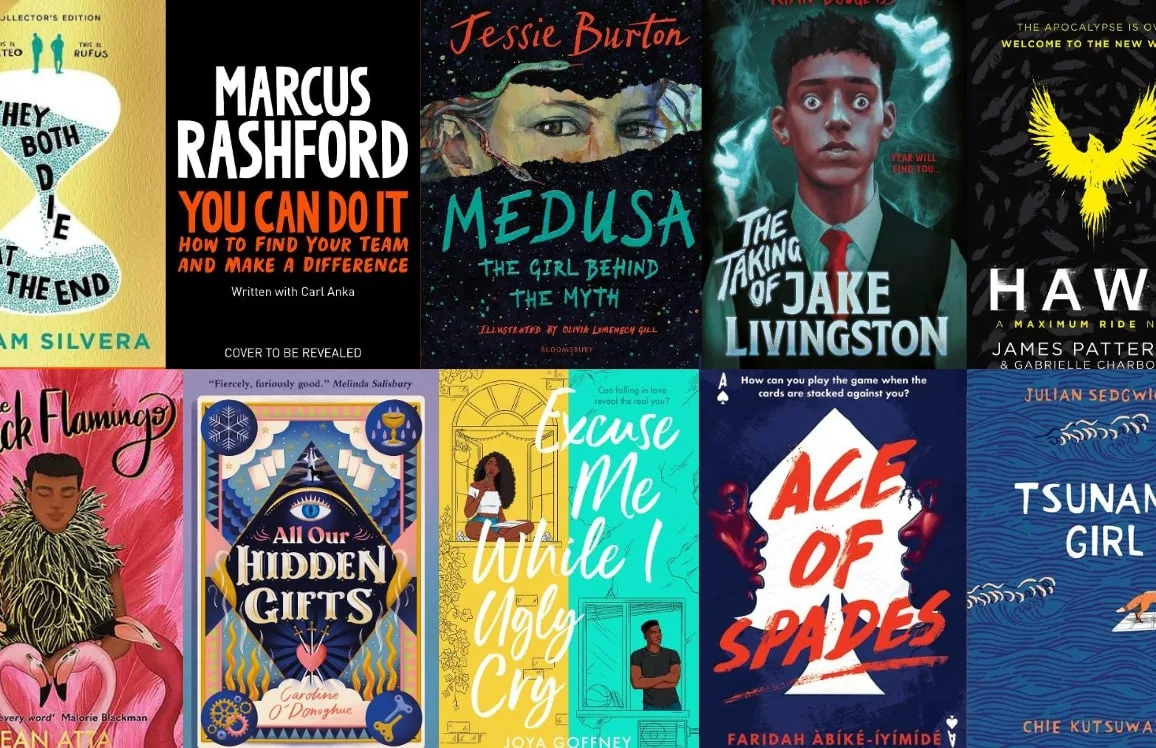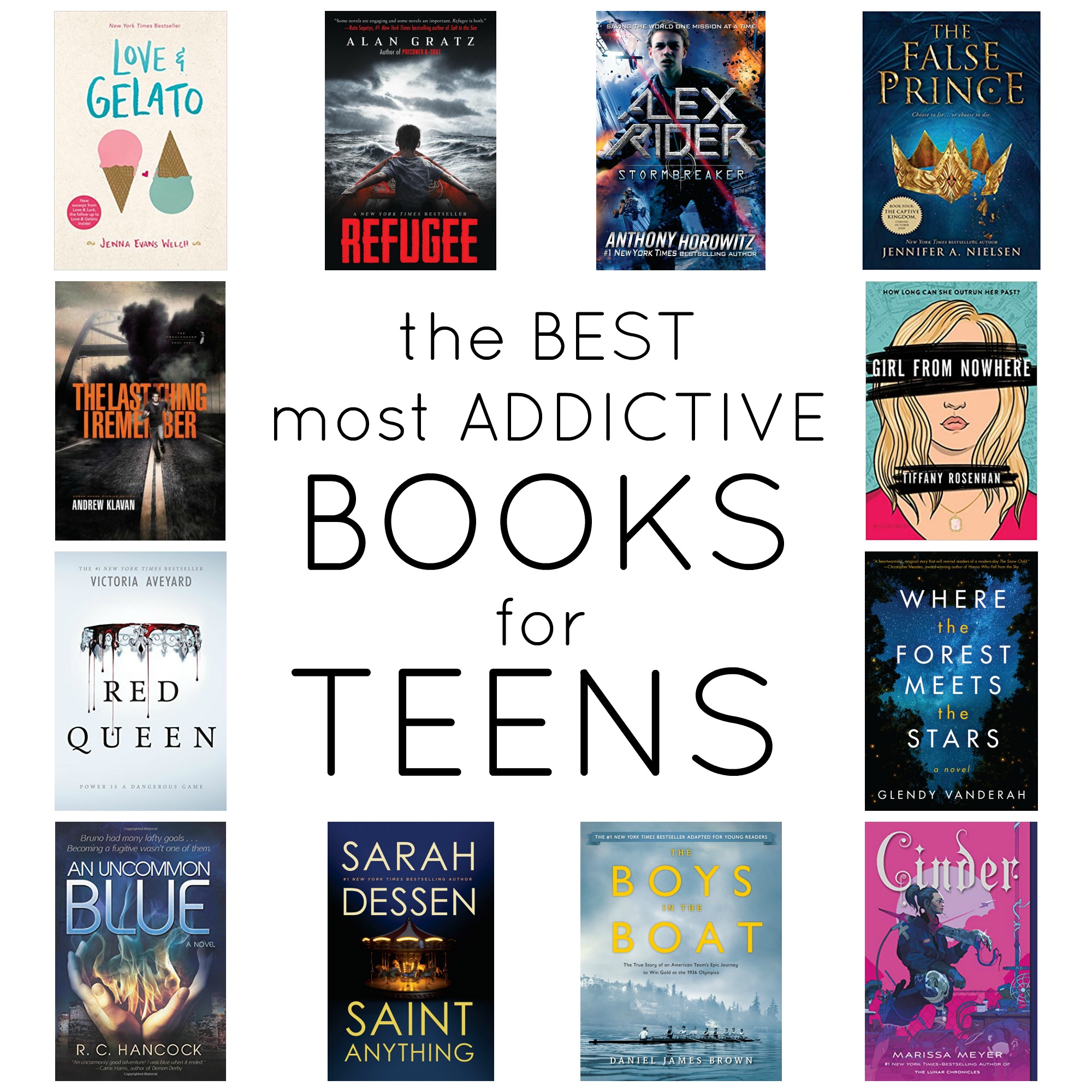Books for Adolescents: A Comprehensive Guide to Navigating the World of Young Adult Literature

Adolescence is a period of significant personal growth and discovery, and literature plays a crucial role in shaping the worldview and emotional landscape of young adults. Choosing the right books for adolescents can be a powerful tool for fostering critical thinking, empathy, and a lifelong love of reading. This guide delves into the diverse world of young adult literature, exploring various genres, influential authors, and the broader cultural impact of these books. We will examine how reading can contribute to personal development, and look at the vital role libraries play in access to these important resources.
Genre Exploration: Finding the Perfect Fit for Every Adolescent Reader

The world of books for adolescents encompasses a breathtaking array of genres, each offering unique perspectives and engaging narratives. Finding the right fit for each individual teenager hinges on understanding their interests and preferences. Some common genres popular among young adults include:
-
Mystery and Thriller: These suspenseful narratives keep readers on the edge of their seats, often featuring intriguing plots, complex characters, and unexpected twists. Examples include The Taking of Jake Livingston by Ayana Gray, a chilling blend of horror and mystery, and Ace of Spades by Faridah Àbíké-Íyímídé, a gripping tale of anonymous texting and unraveling secrets within a prestigious school. These books can ignite a teen’s curiosity and problem-solving skills.
-
Fantasy and Science Fiction: These imaginative genres transport readers to otherworldly realms, introducing them to captivating magic systems, futuristic technologies, and extraordinary characters. Examples include the immensely popular Harry Potter series by J.K. Rowling, which introduces magic and complex themes, and The Shadow and Bone trilogy by Leigh Bardugo, which combines fantasy with a compelling plot. These genres can inspire creativity and exploration of complex ideas.
-
Contemporary Realistic Fiction: These novels reflect the realities of teenage life, exploring themes such as friendship, family relationships, identity, and societal issues. Books like When Shadows Fall by Sita Bramachari, which tackles grief and the challenges of adolescence, and Mind Your Head by Juno Dawson, which offers honest insights into mental health, provide adolescents with relatable characters and meaningful discussions about crucial issues.
-
Historical Fiction: These books transport readers to different historical periods, allowing them to experience pivotal moments in history through the eyes of fictional characters. Number the Stars by Lois Lowry and To Kill a Mockingbird by Harper Lee are examples that tackle historical themes while developing characters and weaving compelling stories. These works provide insights into different times and cultures.
-
Romance: While often criticized for focusing solely on relationships, contemporary teen romance novels often tackle much deeper themes such as identity, self-discovery and complex personal journeys. Books like They Both Die at the End by Adam Silvera, which delves into life, loss and accepting mortality and Excuse Me While I Ugly Cry by Joya Goffney, which balances rom-com elements with meaningful personal growth, show the diversity of this genre.
-
Graphic Novels and Manga: These visually rich narratives combine words and images to create immersive reading experiences. Tsunami Girl by Julian Sedgwick and The Black Flamingo by Dean Atta (with illustrations by Anshika Khullar) offer beautiful storytelling, making these genres more accessible for reluctant readers and adding another dimension to narratives.
The vastness of genres allows for personalized selection based on a teenager’s specific interests, whether it’s the thrill of a mystery, the escapism of fantasy, or the relatability of contemporary fiction.
Exploring Classics and Bestsellers: A Timeless Appeal
While new releases constantly emerge, classic and bestselling books for adolescents retain their relevance due to their enduring themes and masterful storytelling. Classics like To Kill a Mockingbird and The Lord of the Rings (adapted for young readers) offer timeless lessons on morality, justice, and the human spirit. Bestsellers, often reflecting current trends and social issues, provide adolescents with immediate relevance and engagement. The popularity of a book reflects the resonance of its themes and characters with a wider audience.
The Power of Authors: Voices Shaping Adolescent Narratives

Authors play a pivotal role in shaping adolescent literature, each bringing their unique writing style, inspirations, and perspectives to their work. Understanding an author’s background and influences can add depth to the reading experience, allowing for a more nuanced understanding of the narratives they craft. For example, studying an author’s biography can shed light on how their life experiences informed their writing and characters. Exploring their writing style highlights how their unique voice shapes the storytelling. Studying their inspirations helps to understand the sources of their creativity and narratives. And finally, exploring their famous works and themes across their body of work will allow for greater understanding of the writer’s artistic process.
Reading and Learning: Beyond Entertainment

The benefits of reading extend far beyond mere entertainment. Books can significantly enrich an adolescent’s understanding of themselves and the world around them, fostering essential life skills.
-
Developing Critical Thinking: Engaging with complex narratives and characters encourages adolescents to analyze plot lines, interpret characters’ motivations, and evaluate the author’s message. This builds critical thinking skills, improving decision making and problem solving in real life.
-
Enhancing Empathy and Understanding: Exposure to diverse characters and perspectives fosters empathy and broadens understanding of different cultures, experiences, and worldviews. Reading narratives outside of one’s own experiences allows for critical perspectives and improved social awareness.
-
Discovering Life Lessons: Many young adult books tackle important life lessons and universal themes such as friendship, loss, love, identity, and self-discovery. These narratives can help adolescents navigate personal challenges and emotional transitions, improving their personal well-being.
-
Cultivating a Reading Habit: A love of reading is an invaluable asset, providing lifelong opportunities for learning, enjoyment, and escapism. Encouraging a consistent reading habit establishes a powerful positive influence for life.
Libraries: Gateways to Literary Worlds
Libraries, both physical and digital, serve as invaluable gateways to vast collections of books, making them essential resources for adolescents. Public libraries offer a wide range of books tailored to different ages and interests, providing easy access for all. Digital libraries such as Lbibinders.org expand this accessibility by providing online catalogues, e-books, and audiobooks. Rare collections and archives within larger libraries offer unique opportunities for historical and literary research. The role of the library goes far beyond merely storing books, they offer services, programs and outreach to encourage and foster a love of learning and reading.
Cultural Impact: Literature’s Enduring Influence
Young adult literature doesn’t exist in a vacuum; it significantly influences and is influenced by broader cultural trends, impacting society in various ways.
-
Literary Influence: Popular books for adolescents often spawn sequels, spin-offs, and even entirely new literary movements. These works become part of ongoing literary dialogues across society.
-
Adaptations: Many books are adapted into films, television shows, and other media formats. This extends their reach to a broader audience and creates rich discussions on the interpretations and differences between various forms of media.
-
Awards and Recognition: Awards such as the Newbery Medal and the Printz Award recognize outstanding achievements in young adult literature, highlighting books of exceptional quality and bringing attention to those authors and works.
-
Communities: Online forums, book clubs, and social media groups devoted to young adult literature allow adolescents to connect, discuss their reading experiences, and build a strong sense of community around shared interests. The social connections and shared enjoyment of literature help to inspire and maintain the love of reading.
By exploring the various facets of young adult literature—from genre exploration to the cultural impact—we can empower adolescents to engage with literature meaningfully, fostering a lifelong appreciation for reading and its transformative power. The right book can spark a passion, ignite a conversation, and empower a young adult to navigate the complexities of adolescence with understanding and growth.